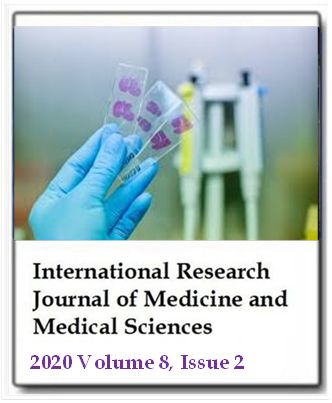Prospective study to identify the presence and prevalence of personality traits and other influences relevant to cosmetic surgery interest, patient selection and surgical outcome in a diverse aesthetic surgery practice
Jeffrey Morgan, Micheal Rodriguez, Alex Zuriarrain and Zoran BursacInternational Research Journal of Medicine and Medical Sciences
Published: June 23 2020
Volume 8, Issue 2
Pages 67-75
DOI: https://doi.org/10.30918/IRJMMS.82.20.017
Abstract
The key to a successful cosmetic surgery procedure lies in the selection of the patients. An anonymous voluntary participant study to evaluate whether not very well studied personality traits and secondary influences related to the decision to have cosmetic surgery could be negative predictors for cosmetic surgery patient selection and potentially surgical outcomes was performed. The mean Rosenberg Self-Esteem Scale score was 35.30 (SD = 4.22), indicating overall, the subjects had high self-esteem. Rosenberg score was 3 units lower for those that reported it would matter if no one thought the results looked good at least a little. There was a statistically significant difference in scores of Rosenberg based on age group. The mean Short Form-12 Mental Component Summary score was 51.93 (SD = 8.99), indicating that overall, the mental health of the subjects in this study may be slightly above the average. Short Form-12 scores were borderline significantly higher by almost two units for those that reported it would matter if no one thought the results looked good. The mean score on Body Image Questionnaire was 52.95 (SD = 5.48), indicating overall, subjects had a moderate level of body satisfaction. There was no statistically significant difference in scores of Body Image Questionnaire. The mean Dependent Personality Questionnaire score was 11.50 (SD = 2.88), indicating overall, subjects had mild to moderate level of dependent personality. Dependent Personality questionnaire yielded a significantly higher score for those that reported it would matter if no one thought the results looked good a little compared to not at all. Dependent Personality Questionnaire was borderline significantly lower for those reporting other race compared to white. The mean Beck’s Depression Inventory score was 4.90 (SD = 6.22), indicating overall, subjects had very mild depressive symptoms. When Beck’s was converted to a descriptive classification the majority of the subjects were considered to have minimal depression (86%) or normal ups and downs (84%). Beck’s was lower by over 5 units for women 31-45 compared to over 46.
Keywords: Cosmetic surgery, aesthetic surgery, personality disorders, self-esteem, body image, RSES, BIQ, BDI, SF-12, DPQ.
Full Text PDFThis article is published under the terms of the Creative Commons Attribution License 4.0

